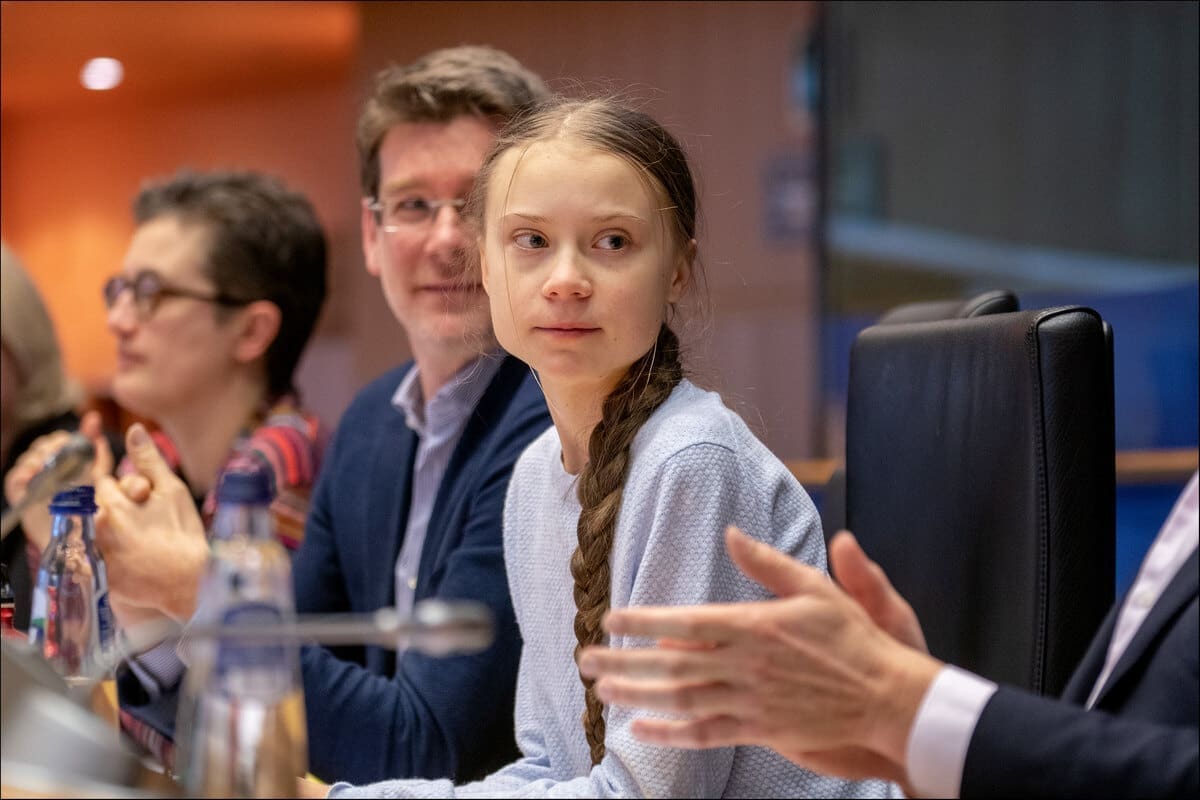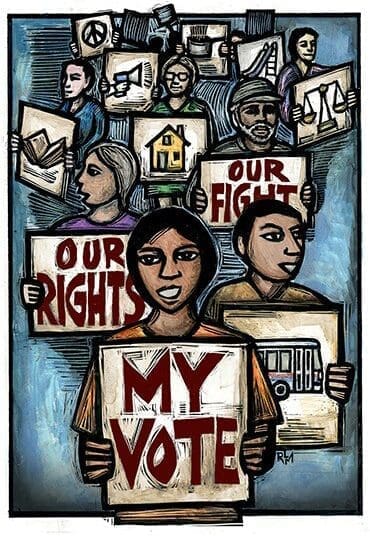Picture this: a 16-year-old is trusted to navigate a two-ton hunk of metal at 70 miles per hour on a highway, but when deciding who gets to run the country, well, that’s clearly too much responsibility. Apparently, steering a lethal machine is less consequential in the grand hierarchy of life than casting a vote. The irony is almost as thick as the red tape they’ll encounter at the DMV when they apply for their driver’s license. Yet, here we are, clinging to the outdated notion that voting should remain the sacred domain of those aged 18 and over. Isn’t it time we reconsidered?
In an era when teenagers are at the forefront of social movements and political activism, the idea that they lack the capacity to vote is more than a little absurd—it’s almost quaint. It’s like believing that if you ignore your student loan debt long enough, it will magically disappear.
Not just political, but politically active
Let’s abandon the notion that teenagers are more interested in Snapchat filters than Senate hearings. Today’s youth are dialed into politics in ways previous generations couldn’t have imagined, not just passively scrolling past headlines but creating them. From climate action to gun reform, teenagers organize rallies, shape public discourse, and influence legislation before they’ve even taken their SATs. Take this data point: according to a study by the Harvard Youth Poll, in the 2020 election, 63% of 18- to 29-year-olds said they voted, the highest youth turnout in decades. But let’s not forget that a substantial part of this politically engaged group includes 16- and 17-year-olds who had to sit on the sidelines despite being just as invested in the outcome.
The political engagement of youth isn’t theoretical. Take Greta Thunberg, who didn’t just dabble in environmental activism—she catalyzed a global movement. And she did so without even the most basic democratic right: a vote. It’s like giving someone a seat at the table but no utensils to eat. These young people are passionately involved, yet when election time rolls around, they are merely spectators in a game they’re already playing. They can choose between candidates if they’re mature enough to rally for change.

Drowning in information
The old argument that teenagers aren’t informed enough to vote any longer holds water. Let’s be honest: today’s youth have more information at their disposal than any generation before them. According to Pew Research, 95% of teens have access to a smartphone, and with that comes an endless flow of information—political news, debates, or direct communication with activists and policymakers. They aren’t living in some idyllic 1950s bubble where political awareness was limited to what the evening news anchor told you. They’re plugged into a world of non-stop data streams and savvy enough to sift through the noise. They’ve mastered the art of discerning clickbait from credible reporting, but some adults still can’t resist sharing that latest conspiracy theory from their Facebook feeds.
And while we’re at it, let’s talk about how older voters—those “mature” enough to vote—aren’t exactly bastions of rational decision-making either. They’ve been known to fall prey to misinformation, just like everyone else. Voting isn’t a privilege bestowed upon the most enlightened; it’s a responsibility. And it’s one that young people are ready to embrace.
Arbitrary Age Limits
Let’s take a moment to laugh—or cry—at the arbitrary nature of age-based restrictions. A teenager is old enough to work and pay taxes but not old enough to have a say in spending those taxes. The hypocrisy would be amusing if it weren’t so detrimental. This line of thinking assumes wisdom magically materializes on one’s 18th birthday, as though the moment you blow out the candles on that milestone cake, you’re suddenly bestowed with the ability to understand fiscal policy. Spoiler alert: that’s not how it works.
Responsibility isn’t an age-related phenomenon. It’s learned, nurtured, and exercised. We don’t wait until someone is an adult to start teaching them responsibility—so why do we wait to hand them the most basic civic tool? Studies from Austria, where the voting age is 16, show that younger voters are more politically active and remain engaged in the democratic process as they age. If we cultivate the habit of voting early, we’ll have a more involved electorate later. That’s not idealistic; that’s just good sense democracy.
More Insightful Than You Think
The notion that young voters would somehow muck up the democratic process is not only insulting but demonstrably false. Studies show that younger voters bring fresh, progressive perspectives to the political table, often more aligned with the future than the past. Where older voters might cling to outdated economic policies or resist necessary reforms, younger voters tend to advocate for long-term solutions to today’s pressing problems—climate change, technological innovation, and social justice.
You wouldn’t hand the reins of a company over to someone stuck in the past, so why do we insist on sidelining the very people who will inherit the future? The younger generation is poised to take on leadership roles and ready to start shaping the policies that will govern their future. And to say they aren’t prepared is to ignore the fact that, in many ways, they’re already leading. They just don’t have the ballot to prove it.
Not Too Young To Vote | Empowering Gen Next
Voting is not just about choosing between two candidates; it’s an act of empowerment. Lowering the voting age would send a message to young people that their voices truly matter. It would empower them to take ownership of their future tangibly, encouraging them to remain engaged throughout their lives. Civic responsibility, like any other habit, is best developed early. Let’s not pretend that a disaffected 18-year-old will suddenly feel compelled to vote if they’ve been told for years that their opinion doesn’t matter.
Think of it this way: voting is the ultimate group project, and we’ve all been part of one of those. You know the drill—the few who are motivated carry the rest. Lowering the voting age doesn’t mean throwing everyone into the deep end of the political pool; it means inviting more contributors to the project, people who actually want to be involved. If we start them young, they’ll be lifelong voters, and that’s a win for democracy as a whole.
The Time for Change Is Now
Lowering the minimum voting age isn’t just about giving teens a voice; it’s about adapting to the realities of today’s world. If we trust them to drive, work, and contribute to society, why not trust them to vote? This isn’t about radical change; it’s about progress. It’s about recognizing that today’s youth are not just the future—they’re also the present. And they deserve a say in shaping both.
So, should the minimum voting age be lowered? Absolutely. Let’s stop pretending that wisdom comes with a driver’s license and start acknowledging that young people are ready—eager, even—to take part in the democratic process. After all, the more hands we have on deck, the better chance we have of steering this ship in the right direction.





